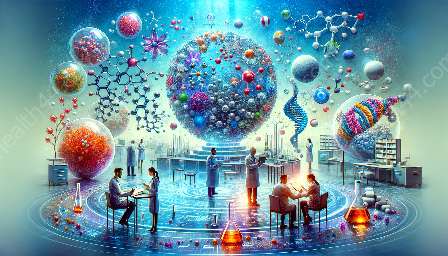Drug delivery systems play a crucial role in the field of pharmacology and pharmacy, as they are responsible for ensuring that medications reach their intended targets in the body in a safe and effective manner. In this comprehensive guide, we will explore the diverse landscape of drug delivery systems, their impact on medication administration, and the latest advancements in the field.
Understanding Drug Delivery Systems
Before diving into the specifics of various drug delivery systems, it is essential to understand the basic concept behind them. Drug delivery systems refer to technologies and methods used to transport medications to specific sites in the body in order to achieve the desired therapeutic effect while minimizing side effects.
The Importance of Drug Delivery Systems in Pharmacology and Pharmacy
Effective drug delivery systems are essential for improving patient compliance, maximizing drug efficacy, and minimizing adverse effects. These systems also play a critical role in the development of new therapeutic agents and ensuring controlled release of medications.
Types of Drug Delivery Systems
There are various types of drug delivery systems, each designed to address specific medication administration needs. Some of the most common types include:
- Oral Drug Delivery System: This system involves the administration of medications through the mouth, allowing for systemic absorption through the gastrointestinal tract.
- Transdermal Drug Delivery System: These systems deliver medications through the skin, allowing for sustained release and avoiding the first-pass metabolism.
- Pulmonary Drug Delivery System: Inhalation-based delivery systems for rapid and targeted drug delivery to the lungs, particularly beneficial for respiratory conditions.
- Injectable Drug Delivery System: This includes intravenous, intramuscular, and subcutaneous routes for direct delivery of medications into the bloodstream or tissues.
- Implantable Drug Delivery System: These systems involve the insertion of drug-releasing implants into the body for sustained and localized drug release.
Recent Advances in Drug Delivery Systems
The field of drug delivery systems is continuously evolving, with ongoing research and development leading to innovative advancements. Some of the recent breakthroughs in this area include:
- Nanotechnology-Based Drug Delivery: Utilizing nanoparticles for targeted drug delivery, improving drug solubility, and bypassing biological barriers.
- Smart Drug Delivery Systems: Integration of responsive materials and technologies to create systems that can release drugs in response to specific stimuli, such as pH or temperature changes.
- Biodegradable Implants: Development of implantable devices that can gradually release drugs and are eventually absorbed by the body, eliminating the need for surgical removal.
Impact on Pharmacology and Pharmacy
The advancements in drug delivery systems have a profound impact on the fields of pharmacology and pharmacy. These breakthroughs enable the development of more effective and targeted therapies, leading to improved patient outcomes and enhanced treatment options for various medical conditions.
Conclusion
Drug delivery systems are at the forefront of modern pharmacology and pharmacy, revolutionizing the way medications are administered and improving the overall efficacy and safety of treatments. Keeping abreast of the latest developments in this field is essential for healthcare professionals to provide optimal care and ensure the successful delivery of medications to patients.


